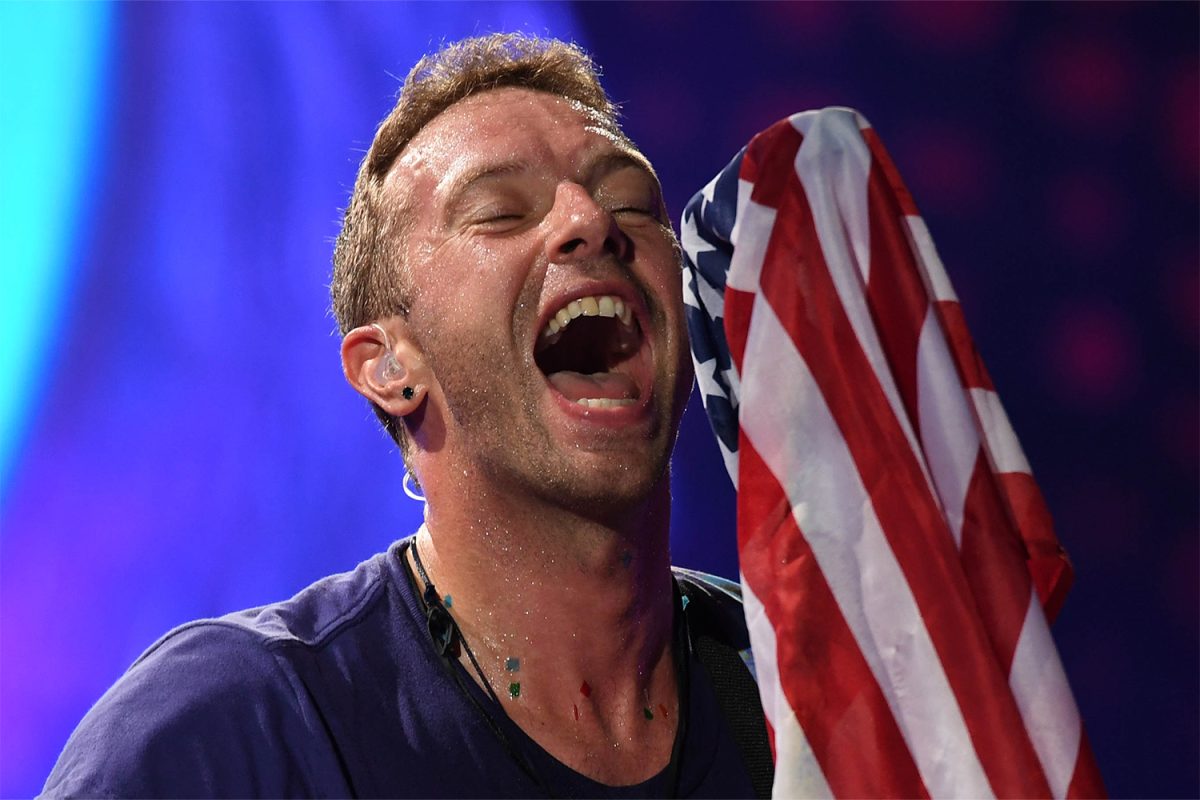Remaining faithful to an artist becomes difficult when they stray from their former genre into uncharted territory. This has been my struggle since Coldplay released its new single “WE PRAY” on Aug. 23, teasing its upcoming album, “Moon Music.”
In just the first few seconds of the song, it’s apparent the band has begun to dabble in an entirely new sound. Based on the title, I expected to hear an orchestral opening filled with chimes reminiscent of church bells, or perhaps the alternative sound of an acoustic guitar.
Instead, I was greeted by a hip-hop beat just as intense as the all-caps, stylized title. It kicks off with auditory layers composed of percussion loops, bass hits, and ad-libs sung by the acclaimed English rapper Little Simz, a surprising choice of artist to accompany the rock-pop band.
She is not the only new voice heard on this single. Palestinian-Chilean singer Elyanna — who recently made history by performing the first set in Arabic at Coachella 2023 — and Argentinian singer TINI are also heard vocalizing in the background. Burna Boy, too, makes an unforeseen appearance with a passionate, soulful bridge.
The odd one out, then, is Coldplay itself, who does not typically produce rap, afro-beats, or soul music. However, this made the preservation of its personal sound while experimenting with other genres all the more impressive to me.
I didn’t appreciate these aspects of “WE PRAY” on my first listen, but on my second play-through, I recognized Coldplay’s signature: string instruments and the divine message emanating from the piece.
During the band’s dramatic entrance thirteen seconds into the song, I heard the deep, hollow sound of a cello, embellished by the secondary contrapuntal line of a higher-pitched violin or viola that continues throughout the remaining three minutes.
Immediately, I recalled the band’s 2008 hit “Viva La Vida,” which opened with the same strong, emotional, and orchestral sound. While Coldplay explores a genre less familiar to it, this was a comforting nod to its former work, easing my journey into its unknown realm of music.
The lyrics, too, paid homage to Coldplay’s God-fearing, freedom-seeking discography. I found the chorus most jarring, in which a reference to the Iranian power ballad “Baraye” is embedded: “And so we pray / We’ll be singin’ ‘Baraye’ / Pray that we make it to the end of the day.”
Prayer, religion, love, and freedom have always been themes the band has fervently sought to embody from its earliest album, “Brothers & Sisters,” to the world-renowned “Viva La Vida.” There is a clear shift, though, from wanting to share its own experiences of infatuation and faith to addressing the worldwide grievances and injustices surrounding these themes.
Coldplay embraced this shift through collaborations with diverse, internationally acclaimed artists. Upon analyzing the lyrics, it no longer seems to me that the featured artists were chosen randomly or based on rising numbers in the music industry.
Biting into “WE PRAY” is introducing yourself to a plethora of different sounds and flavors that are new to Coldplay’s palette, and this most certainly requires more than one listen to become acquainted with, let alone infatuated with.
Regardless, it did not leave a bad taste on my tongue. It’s simply different, and after approximately 27 years of making music, it is not so outlandish for the famous rock-pop band to explore new musical paths. What makes the core of an artist is their deviation from people’s expectations of them, and “WE PRAY” is a phenomenal example of this.



